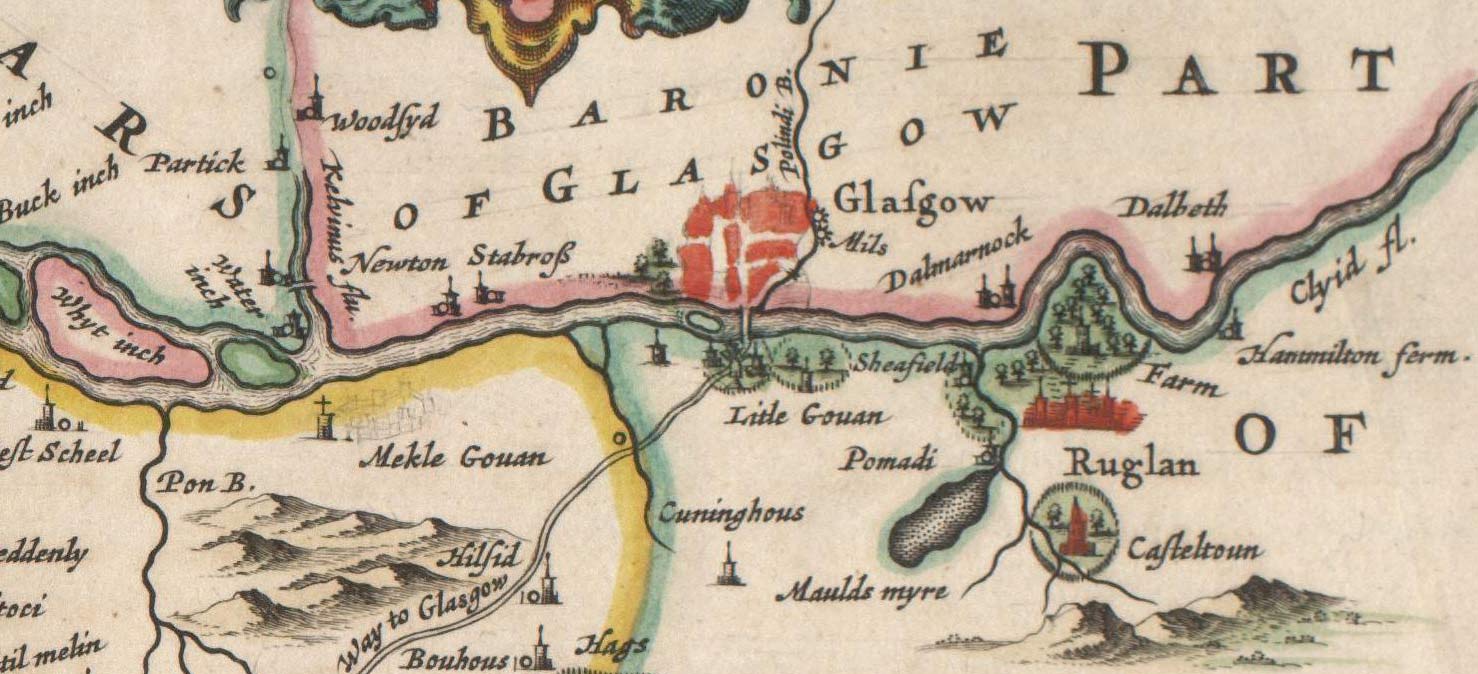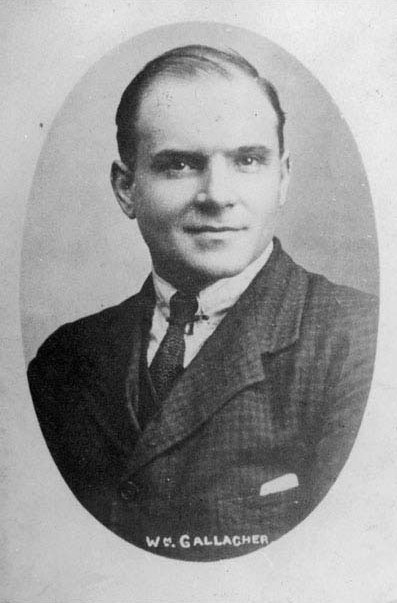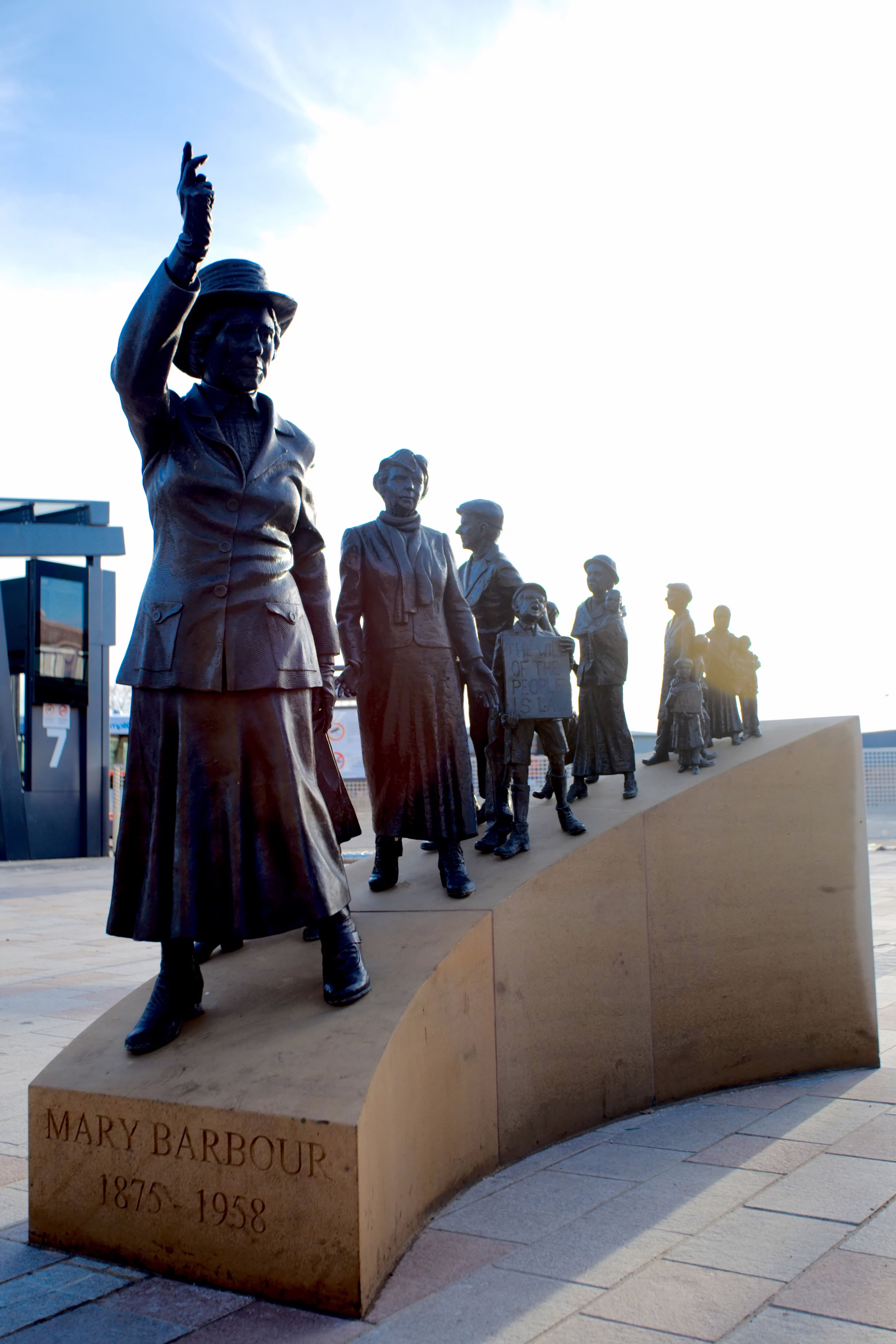|
South Govan Women's Housing Association
South Govan Women's Housing Association was established in 1915 under the leadership by Mary Barbour in Govan on the south side of Glasgow in Scotland. The Glasgow Rent strikes began in response to rent increases in Glasgow during the First World War. Many thought the landlords in Glasgow were taking advantage of households whose men were away fighting as part of the war effort; thus, working-class women formed tenants associations such as the South Govan Women's Housing Association. Led by Helen Crawfurd, Mary Barbour, Agnes Dollan and Jessie Stephen Jessie Stephen, Order of the British Empire, MBE (19 April 1893 12 June 1979) was a twentieth-century British suffragette, labour activist and local councillor. She grew up in Scotland and won a scholarship to train as a teacher. Family financ ..., the South Govan Women's Housing Association sought to prevent evictions from tenants who could not afford the rent increase and campaigned for subsidized housing. Their efforts led ... [...More Info...] [...Related Items...] OR: [Wikipedia] [Google] [Baidu] |
Mary Barbour
Mary Barbour ( Rough; 20 February 1875 – 2 April 1958) was a Scottish political activist, local councillor, bailie and magistrate. Barbour was closely associated with the Red Clydeside movement in the early 20th century and especially for her role as the main organiser of the women of Govan who took part in the rent strikes of 1915.Audrey Canning, ‘Barbour , Mary (1875–1958)’, Oxford Dictionary of National Biography, Oxford University Press, 2004; online edn, May 200accessed 14 Feb 2014/ref> Life Barbour was born on 20 February 1875 at 37 New Street, Kilbarchan to Jean (Gavin) and James Rough, a handloom carpet weaver. She was the third of seven children. Barbour attended school until she was fourteen years old. In 1887, the family moved to the village of Elderslie and Barbour worked as a thread twister, eventually becoming a carpet printer. On 28 August 1896, Mary Rough married an engineer, David Barbour (2 May 1873 – 13 November 1957), at Wallace Place, Elderslie. ... [...More Info...] [...Related Items...] OR: [Wikipedia] [Google] [Baidu] |
Govan
Govan ( ; Cumbric?: ''Gwovan'?''; Scots: ''Gouan''; Scottish Gaelic: ''Baile a' Ghobhainn'') is a district, parish, and former burgh now part of south-west City of Glasgow, Scotland. It is situated west of Glasgow city centre, on the south bank of the River Clyde, opposite the mouth of the River Kelvin and the district of Partick. Historically it was part of the County of Lanark. In the early medieval period, the site of the present Govan Old churchyard was established as a Christian centre for the Brittonic Kingdom of Alt Clut (Dumbarton Rock) and its successor realm, the Kingdom of Strathclyde. This latter kingdom, established in the aftermath of the Viking siege and capture of Alt Clut by Vikings from Dublin in AD 870, created the sandstone sculptures known today as the Govan Stones. Govan was the site of a ford and later a ferry which linked the area with Partick for seasonal cattle drovers. In the eighteenth and nineteenth centuries, textile mills and coal mining were ... [...More Info...] [...Related Items...] OR: [Wikipedia] [Google] [Baidu] |
Glasgow
Glasgow ( ; sco, Glesca or ; gd, Glaschu ) is the most populous city in Scotland and the fourth-most populous city in the United Kingdom, as well as being the 27th largest city by population in Europe. In 2020, it had an estimated population of 635,640. Straddling the border between historic Lanarkshire and Renfrewshire, the city now forms the Glasgow City Council area, one of the 32 council areas of Scotland, and is governed by Glasgow City Council. It is situated on the River Clyde in the country's West Central Lowlands. Glasgow has the largest economy in Scotland and the third-highest GDP per capita of any city in the UK. Glasgow's major cultural institutions – the Burrell Collection, Kelvingrove Art Gallery and Museum, the Royal Conservatoire of Scotland, the Royal Scottish National Orchestra, Scottish Ballet and Scottish Opera – enjoy international reputations. The city was the European Capital of Culture in 1990 and is notable for its architecture, cult ... [...More Info...] [...Related Items...] OR: [Wikipedia] [Google] [Baidu] |
Glasgow Rent Strikes 1915
Red Clydeside was the era of political radicalism in Glasgow, Scotland, and areas around the city, on the banks of the River Clyde, such as Clydebank, Greenock, Dumbarton and Paisley, from the 1910s until the early 1930s. Red Clydeside is a significant part of the history of the labour movement in Britain as a whole, and Scotland in particular. Some newspapers of the time used the term "Red Clydeside" to refer, largely derisively, to the groundswell of popular and political radicalism that had erupted in Scotland. A confluence of charismatic individuals, organised movements and socio-political forces led to Red Clydeside, which had its roots in working-class opposition to Britain's participation in the First World War, although the area had a long history of political radicalism going back to the Society of the Friends of the People and the " Radical War" of 1820. 1911 strike at Singer The 11,000 workers at the largest Singer sewing machines factory, in Clydebank, went on ... [...More Info...] [...Related Items...] OR: [Wikipedia] [Google] [Baidu] |
Helen Crawfurd
Helen Crawfurd ( Jack, later Anderson; 9 November 1877 – 18 April 1954) was a Scottish suffragette, rent strike organiser, Communist activist and politician. Born in Glasgow, she was brought up there and in London. Biography Born Helen Jack at 175 Cumberland Street in the Gorbals area of Glasgow, her parents were Helen L. ( Kyle) and William Jack. Her mother worked a steam-loom before she wed. Helen's family moved to Ipswich while she was young. Crawfurd later went to school in London and Ipswich before moving back to Glasgow as a teenager. Crawfurd's father, a master baker, was a Catholic, but converted to the Church of Scotland and became a conservative trade unionist. Initially religious herself and a Sunday School teacher, Crawfurd felt a call to be married at 21 to the 67-year-old widower Alexander Montgomerie Crawfurd (29 August 1828 – 31 May 1914), a Church of Scotland minister and family friend. but he became increasingly radical.A. T. Lane, ed., ''Biographical Dic ... [...More Info...] [...Related Items...] OR: [Wikipedia] [Google] [Baidu] |
Agnes Dollan
Agnes Johnston Dollan MBE ( Moir; 16 August 1887 – 16 July 1966), also known as Agnes, Lady Dollan, was a Scottish suffragette and political activist. She was a leading campaigner during the Glasgow Rent Strikes, and a founding organiser of the Women's Peace Crusade. In 1919, she was the first woman selected by the Labour party to stand for election to Glasgow Town Council, and later became Lady Provost of Glasgow. Early life Dollan was born on Springburn Road in Springburn, Glasgow on 16 August 1887 to Anne Wilkinson and Henry Moir, a blacksmith in the locomotive works. She was one of eleven children. Dollan attended school locally until the age of eleven before being forced to leave due to family poverty. Dollan also attended the Socialist Sunday Schools, where she "graduated as a Socialist". On leaving school, Dollan went first to work in a factory before becoming a Post Office telephone operator. During this latter job, Dollan joined the Women's Labour League ... [...More Info...] [...Related Items...] OR: [Wikipedia] [Google] [Baidu] |
Jessie Stephen
Jessie Stephen, Order of the British Empire, MBE (19 April 1893 12 June 1979) was a twentieth-century British suffragette, labour activist and local councillor. She grew up in Scotland and won a scholarship to train as a teacher. Family finances dictated otherwise, leading to her becoming a domestic worker at the age of 15. She became involved in national labour issues as a teenager, via organisations such as the Independent Labour Party and the Women's Social and Political Union. Stephen moved to London during World War I and in the 1920s she toured the United States and Canada, where she held meetings with the public including migrant English domestic workers. Stephen was elected as a local councillor several times and stood as a candidate in general elections. After moving to Bristol in the 1940s she became the first woman president of Bristol Trades Council. She was appointed MBE in 1977 and her life is commemorated by a blue plaque in Bristol. Biography Stephen is reco ... [...More Info...] [...Related Items...] OR: [Wikipedia] [Google] [Baidu] |
Red Clydeside
Red Clydeside was the era of political radicalism in Glasgow, Scotland, and areas around the city, on the banks of the River Clyde, such as Clydebank, Greenock, Dumbarton and Paisley, from the 1910s until the early 1930s. Red Clydeside is a significant part of the history of the labour movement in Britain as a whole, and Scotland in particular. Some newspapers of the time used the term "Red Clydeside" to refer, largely derisively, to the groundswell of popular and political radicalism that had erupted in Scotland. A confluence of charismatic individuals, organised movements and socio-political forces led to Red Clydeside, which had its roots in working-class opposition to Britain's participation in the First World War, although the area had a long history of political radicalism going back to the Society of the Friends of the People and the "Radical War" of 1820. 1911 strike at Singer The 11,000 workers at the largest Singer sewing machines factory, in Clydebank, went on str ... [...More Info...] [...Related Items...] OR: [Wikipedia] [Google] [Baidu] |
Organizations Established In 1915
An organization or organisation (Commonwealth English; see spelling differences), is an entity—such as a company, an institution, or an association—comprising one or more people and having a particular purpose. The word is derived from the Greek word ''organon'', which means tool or instrument, musical instrument, and organ. Types There are a variety of legal types of organizations, including corporations, governments, non-governmental organizations, political organizations, international organizations, armed forces, charities, not-for-profit corporations, partnerships, cooperatives, and educational institutions, etc. A hybrid organization is a body that operates in both the public sector and the private sector simultaneously, fulfilling public duties and developing commercial market activities. A voluntary association is an organization consisting of volunteers. Such organizations may be able to operate without legal formalities, depending on jurisdiction, includin ... [...More Info...] [...Related Items...] OR: [Wikipedia] [Google] [Baidu] |
1915 Establishments In Scotland
Events Below, the events of World War I have the "WWI" prefix. January * January – British physicist Sir Joseph Larmor publishes his observations on "The Influence of Local Atmospheric Cooling on Astronomical Refraction". *January 1 ** WWI: British Royal Navy battleship HMS ''Formidable'' is sunk off Lyme Regis, Dorset, England, by an Imperial German Navy U-boat, with the loss of 547 crew. ** Battle of Broken Hill: A train ambush near Broken Hill, New South Wales, Australia, is carried out by two men (claiming to be in support of the Ottoman Empire) who are killed, together with 4 civilians. * January 5 – Joseph E. Carberry sets an altitude record of , carrying Capt. Benjamin Delahauf Foulois as a passenger, in a fixed-wing aircraft. * January 12 ** The United States House of Representatives rejects a proposal to give women the right to vote. ** '' A Fool There Was'' premières in the United States, starring Theda Bara as a '' femme fatale''; she quickly becomes o ... [...More Info...] [...Related Items...] OR: [Wikipedia] [Google] [Baidu] |
Organisations Based In Glasgow
An organization or organisation (Commonwealth English; see spelling differences), is an entity—such as a company, an institution, or an association—comprising one or more people and having a particular purpose. The word is derived from the Greek word ''organon'', which means tool or instrument, musical instrument, and organ. Types There are a variety of legal types of organizations, including corporations, governments, non-governmental organizations, political organizations, international organizations, armed forces, charities, not-for-profit corporations, partnerships, cooperatives, and educational institutions, etc. A hybrid organization is a body that operates in both the public sector and the private sector simultaneously, fulfilling public duties and developing commercial market activities. A voluntary association is an organization consisting of volunteers. Such organizations may be able to operate without legal formalities, depending on jurisdiction, includin ... [...More Info...] [...Related Items...] OR: [Wikipedia] [Google] [Baidu] |








